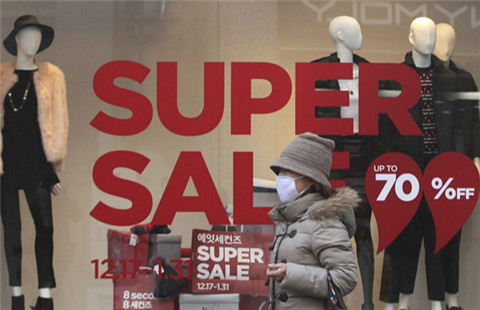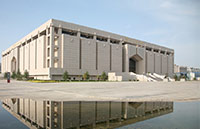Be patient with the Chinese market, says investment veteran
By Dai Tian (chinadaily.com.cn) Updated: 2016-01-21 13:32It's important to the world that China continues to do well. We believe the government has shown through time aptitude and success of managing the dynamic changes in the markets. As the economy becomes bigger, there will be more complexity to the transition and more market volatility. There may have been overvaluation of securities and real estate. What's happening in China is quite encouraging, and we are optimistic for the long term.
Q: Does the renminbi's depreciation concern your clients? How do you see global appetite for renminbi denominated assets to evolve?
Potter: Yes, in terms of equity valuation and whenever individual investors see this kind of volatility, they want assurance. We develop diversified portfolios for our individual clients that include fixed income, equity, commodity and other alternative assets classes. Moments like this remind them of the importance of diversification.
Investors are still concerned about the relative valuation of yuan. Everyone is watching closely to see how stable the market becomes. They are cautious, while at the same time there's confidence that China's economy, even in slowdown, is on a solid ground.
For institutional side, all institutional investors are comfortable with inevitable volatility and they won't panic in front of short-term flows.
We expect the US dollar to continue to strengthen against the yuan by about 10 percent. Our forecast exchange rate by September is 6.67 yuan per dollar.
Q: As one of the few economies that did not experience the global financial crash, how should China learn from the past?
Potter: Chinese economy has been excellently managed, considering the dynamic challenges it has been facing regarding population growth and its transition towards a modern economy. It's no easy task and was done pretty well.
I'm confident that it has all the tools it needs. What we see now is a transition from infrastructure-driven to now consumer-led economy. It's inevitable that some sectors will do better than others. Be patient and changes will continue.
With A-share's inclusion into the MSCI Emerging Market index, there will be inflows of institution capital. It won't necessarily be hot money, and that's what the government has always been cautious about, as the QFII started small before it rolled out.
Q: What's your advice for investors in terms of global asset allocation, given the US Fed's interest rate hike?
Potter: I think there may be one more increase in 2016 of 25 basis points, but the Fed just aims to normalize the interest rate and it's important to maintain lower rate. The economy is growing, but we are not seeing any inflation taking off.
- Top 10 favorite gift brands of rich Chinese women
- Chinese Vice-President injects note of confidence in Davos
- CITIC overtakes HSBC to take bond-market top spot
- Philips eyes major role for China in R&D
- Indexes mirror sharp falls in Japan
- Private equity firm expands sports reach
- Capital outflow surged, but manageable, says SAFE
- China's economy transitioning not derailing: Davos experts
















